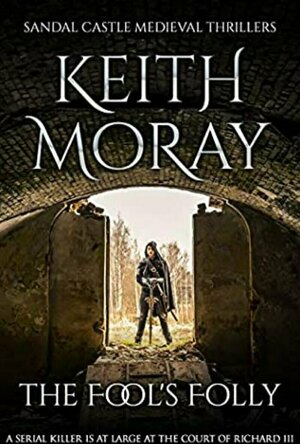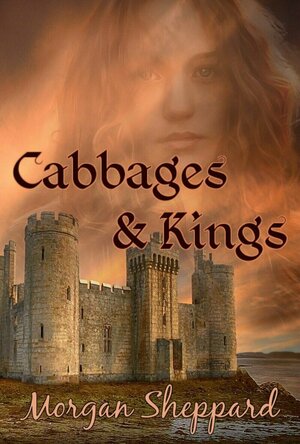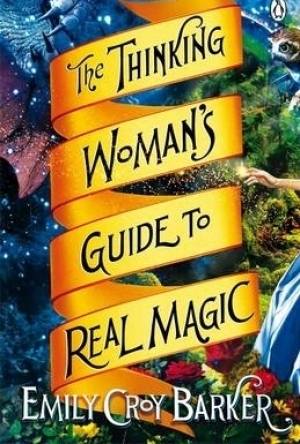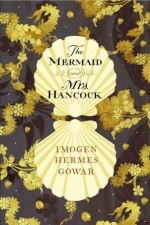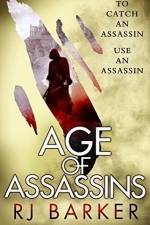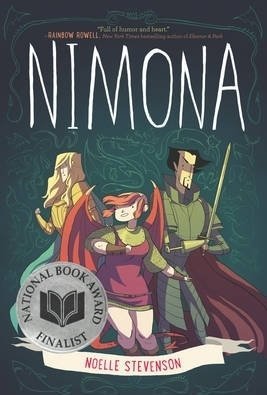Search
Search results
BookwormMama14 (18 KP) rated The Huntress of Thornbeck Forest (A Medieval Fairy Tale, #1) in Books
Jan 2, 2019
Danger and romance lie deep in the heart of Thornbeck Forest. Where a poacher's only desire is to feed the poor. The forester determined to catch the poacher. And a margrave who holds the future of all in his hands.
"Because love was the best reason of all!"
Odette Menkels has a burning desire to help the orphans of Thornbeck. And the forest at her doorstep has an abundance of wild game. The only problem is that the game belongs to the king. Nevertheless, Odette braves the wrath of the margrave who is responsible for the Thornbeck forest. Every night she disguises herself, hunts the deer and feeds the poor. Her life is changed in an instant when she meets Jorgen Hartman, the forester, at the Midsummer festival. Jorgen has found evidence of a poacher and would like nothing better than to bring this poacher to justice. What will he do if he finds out that Odette is the poacher? Will Odette have everything stripped from her? There will be many confessions and consequences, but not all are bad...and some may even surprise you!
This is the first book I have read by Melanie Dickerson, but it won't be the last! I already have The Golden Braid on my list to read by the end of the year. I believe that writing medieval fairy tales for adults was a stroke of genius! The thrill of the chase. The excitement of the hunt. Balls and finery, sorrow and hunger, the desire to do good and the consequences of the laws of the land. The tragic circumstances of the day were portrayed very well. Life in 1363 was rough! But we are reminded that the bonds of love and family are not to be trifled with. Enter the forest of Thornbeck and be whisked through an incredible journey.
"Because love was the best reason of all!"
Odette Menkels has a burning desire to help the orphans of Thornbeck. And the forest at her doorstep has an abundance of wild game. The only problem is that the game belongs to the king. Nevertheless, Odette braves the wrath of the margrave who is responsible for the Thornbeck forest. Every night she disguises herself, hunts the deer and feeds the poor. Her life is changed in an instant when she meets Jorgen Hartman, the forester, at the Midsummer festival. Jorgen has found evidence of a poacher and would like nothing better than to bring this poacher to justice. What will he do if he finds out that Odette is the poacher? Will Odette have everything stripped from her? There will be many confessions and consequences, but not all are bad...and some may even surprise you!
This is the first book I have read by Melanie Dickerson, but it won't be the last! I already have The Golden Braid on my list to read by the end of the year. I believe that writing medieval fairy tales for adults was a stroke of genius! The thrill of the chase. The excitement of the hunt. Balls and finery, sorrow and hunger, the desire to do good and the consequences of the laws of the land. The tragic circumstances of the day were portrayed very well. Life in 1363 was rough! But we are reminded that the bonds of love and family are not to be trifled with. Enter the forest of Thornbeck and be whisked through an incredible journey.
Merissa (12960 KP) rated The Briton and the Dane: Concordia in Books
Dec 17, 2018
This is one of those books that, going from the synopsis, I thought I would love. It sounded intriguing, interesting and full of action. However, what I got is definitely not for me. I read a lot of historical genre and love the medieval period - that is what gives this book the two stars. The descriptions given deliver a world of bygone times to you, everything described is richly detailed from the clothing to the fighting.
What I didn't like at all about this book was the main female character. We get from the synopsis that she is willful, vain, ambitious and cunning. What I wasn't expecting was just how much of a spoilt brat she was. Now perhaps this is exactly the reaction the author wanted but for me personally, Concordia spoilt the rest of the book that much that I had to force myself to finish it. And the ending? I was happy about it! What I wasn't happy about was how much influence she still had over these people once she had gone. But anyhow...
I didn't read anything about feminine cunning or her defending her honour. I read how she was 'forced' but then enjoyed it so carried on some more until she got passed onto the next brother, who also forced her but 'that didn't matter'.
I'm sorry, I know this book has some rave reviews and I'm fully expecting this to get downvoted on Amazon but with a main character like this, it just did absolutely nothing for me. The historical side of it - beautiful, rich in detail and description, a joy to read. The character - forget it, not for me. My apologies to the author for the two stars but that is the most generous I can be. I definitely won't be reading any more of this series.
What I didn't like at all about this book was the main female character. We get from the synopsis that she is willful, vain, ambitious and cunning. What I wasn't expecting was just how much of a spoilt brat she was. Now perhaps this is exactly the reaction the author wanted but for me personally, Concordia spoilt the rest of the book that much that I had to force myself to finish it. And the ending? I was happy about it! What I wasn't happy about was how much influence she still had over these people once she had gone. But anyhow...
I didn't read anything about feminine cunning or her defending her honour. I read how she was 'forced' but then enjoyed it so carried on some more until she got passed onto the next brother, who also forced her but 'that didn't matter'.
I'm sorry, I know this book has some rave reviews and I'm fully expecting this to get downvoted on Amazon but with a main character like this, it just did absolutely nothing for me. The historical side of it - beautiful, rich in detail and description, a joy to read. The character - forget it, not for me. My apologies to the author for the two stars but that is the most generous I can be. I definitely won't be reading any more of this series.
Lenard (726 KP) rated Bill & Ted Face the Music (2020) in Movies
Dec 23, 2020
Stupid Sometimes is Different From Dumb
There is a "danger" to a 50-something year old actor playing a role that they originated as a young adult actor. Especially when the role is the one that a whole generation associates with that actor even when there are at least three other characters one could recognize as the actor's. But the analysis of Keanu Reeves's career, especially the more experimental aspects, is worthy of a blog post or podcast episode.
Bill and Ted Face the Music is the third entry in the series released 29 years after the second one. Bill and Ted are now middle-aged parents still trying to write the song that will unite the world and bring about a utopian society. But once again, that future is threatened unless Bill and Ted can fulfill their destiny. Reality is starting to unravel as George Washington is transported to another time, Babe Ruth takes his place, and Kid Cudi comes to San Dimas. Bill and Ted hijack a time machine and consult with future selves to take the song to their time.
First, I was happy to see the original actors for Missy and Col. Logan also return. Second, the actresses playing the two teenage daughters really captured the essence of Bill and Ted. Third, the couples therapy was a brilliant idea although I am not sure that medieval princesses would really consider this modern-day novelty. Lastly, it was a great idea to have different versions of Bill and Ted to cover the fact that Keanu and Alex are too old to play overgrown versions of the teenage Bill and Ted.
My only complaint was the undercooked screenplay. It had ideas but abruptly ended the threads.
Bill and Ted Face the Music is the third entry in the series released 29 years after the second one. Bill and Ted are now middle-aged parents still trying to write the song that will unite the world and bring about a utopian society. But once again, that future is threatened unless Bill and Ted can fulfill their destiny. Reality is starting to unravel as George Washington is transported to another time, Babe Ruth takes his place, and Kid Cudi comes to San Dimas. Bill and Ted hijack a time machine and consult with future selves to take the song to their time.
First, I was happy to see the original actors for Missy and Col. Logan also return. Second, the actresses playing the two teenage daughters really captured the essence of Bill and Ted. Third, the couples therapy was a brilliant idea although I am not sure that medieval princesses would really consider this modern-day novelty. Lastly, it was a great idea to have different versions of Bill and Ted to cover the fact that Keanu and Alex are too old to play overgrown versions of the teenage Bill and Ted.
My only complaint was the undercooked screenplay. It had ideas but abruptly ended the threads.
ClareR (5891 KP) rated The Fool’s Folly in Books
Jun 9, 2020
The Fool’s Folly is set in 1485 in Yorkshire, England, when King Richard III has been on the throne for two years. It must have been a very unsettling time to live in: not knowing whether your King has murdered his nephews, not knowing how much longer the King will actually keep the throne (Henry Tudor was a very real threat at this time), and not knowing what your fate will be if you chose the wrong side!
This story is set at Sandal Castle, the seat of John de la Pole, King Richard’s heir (and now it becomes clear why Henry VIII wanted to get rid of the de la Pole family!). De la Pole’s jester is murdered, and the newly appointed judge, Sir Giles Beaton, is asked to get to the bottom of the mystery. What starts out as a seemingly open and shut case, ends up being the start of a killing spree. Giles has to wonder if the deaths are connected, and whether this has something to do with a plot against the King and his heir.
It’s a bit gruesome at points - I liked this, I will admit. Medieval postmortems wouldn’t have been for the more sensitive observer (or reader!), I’m sure. I do have a bit of a thing for historical fiction, and a newly developed respect for crime and mysteries. I appreciate the attention to detail, and the research that must have occurred in writing this book, it feels very authentic.
I haven’t read the first book in this series, but it didn’t affect my reading enjoyment at all. In fact it has made me want to read the first in the series as well!
Many thanks to Sapere Books for sending me a copy of this book to read and review!
This story is set at Sandal Castle, the seat of John de la Pole, King Richard’s heir (and now it becomes clear why Henry VIII wanted to get rid of the de la Pole family!). De la Pole’s jester is murdered, and the newly appointed judge, Sir Giles Beaton, is asked to get to the bottom of the mystery. What starts out as a seemingly open and shut case, ends up being the start of a killing spree. Giles has to wonder if the deaths are connected, and whether this has something to do with a plot against the King and his heir.
It’s a bit gruesome at points - I liked this, I will admit. Medieval postmortems wouldn’t have been for the more sensitive observer (or reader!), I’m sure. I do have a bit of a thing for historical fiction, and a newly developed respect for crime and mysteries. I appreciate the attention to detail, and the research that must have occurred in writing this book, it feels very authentic.
I haven’t read the first book in this series, but it didn’t affect my reading enjoyment at all. In fact it has made me want to read the first in the series as well!
Many thanks to Sapere Books for sending me a copy of this book to read and review!
Debbiereadsbook (1454 KP) rated Cabbages & Kings in Books
Feb 3, 2022
wonderful retelling of a local legend
Independent reviewer for Archaeolibrarian, I was gifted my copy of this book.
As a Nottingham girl, I grew with tales of Robin Hood and his Merry Men. So, finding this tale having tipped those tales on their heads was a delight!
The story tells of Alana Dale, and her new husband, Will Scathlock and how they came to suffer at the hands of Robin and Guy, and just how, after all that, THEY came to be the bad guys!
This is a delightful tale, set in places in and around Nottinghamshire, so I know these places, and I love reading books about places I really know.
It's wonderfully written, with detailed descriptions of the things needed to get by, with Alana having ideas wise beyond her years, especially when it comes to health matters.
Alana is a strong-minded young lady (only 16 here!) and she will stand up for herself in a time when it wasn't the done thing. I loved Alana, and her teasing of Will, but to be fair, he gave as good as he got. Alana's deepest fears come to life here, and how she manages to hold it together to keep Will safe BEFORE she loses it, I have no idea.
There is some violence, Alana and Will's village is destroyed in the beginning of the book and the attack's aftermath is described in some detail. Because of this, I would class it as upper young adult, maybe 14+.
Tipping the Robin Hood legend on its head, Ms Sheppard made new heroes, and new bad guys. She tells of everyday life in Medieval England, and just how the common folk survived.
4 very good stars
*same worded review will appear elsewhere
As a Nottingham girl, I grew with tales of Robin Hood and his Merry Men. So, finding this tale having tipped those tales on their heads was a delight!
The story tells of Alana Dale, and her new husband, Will Scathlock and how they came to suffer at the hands of Robin and Guy, and just how, after all that, THEY came to be the bad guys!
This is a delightful tale, set in places in and around Nottinghamshire, so I know these places, and I love reading books about places I really know.
It's wonderfully written, with detailed descriptions of the things needed to get by, with Alana having ideas wise beyond her years, especially when it comes to health matters.
Alana is a strong-minded young lady (only 16 here!) and she will stand up for herself in a time when it wasn't the done thing. I loved Alana, and her teasing of Will, but to be fair, he gave as good as he got. Alana's deepest fears come to life here, and how she manages to hold it together to keep Will safe BEFORE she loses it, I have no idea.
There is some violence, Alana and Will's village is destroyed in the beginning of the book and the attack's aftermath is described in some detail. Because of this, I would class it as upper young adult, maybe 14+.
Tipping the Robin Hood legend on its head, Ms Sheppard made new heroes, and new bad guys. She tells of everyday life in Medieval England, and just how the common folk survived.
4 very good stars
*same worded review will appear elsewhere
Lyndsey Gollogly (2893 KP) rated The Replacement ( A Culling of Blood and Magic book 1) in Books
Dec 2, 2022
216 of 230
Kindle
The Replacement ( A Culling of Blood and Magic book 1)
By K.M. Rives
⭐️⭐️⭐️⭐️
She was never meant to be a member of the Culling. He was never supposed to find his mate. Fate stepped in to ensure both.
There was only one reason the bond would choose Emery Montgomery. Her twin was dead. As soon as the silver band of the Culling appeared on her wrist, binding her to the vampire prince himself, her world turned upside down.
Forced to compete for the heart of her enemy in an archaic version of The Bachelor, Emery had only three things on her mind: Keep her witch heritage a secret, find her sister's murderer, and above all, don’t fall for the sinfully handsome prince.
August Nicholson wanted nothing to do with the pompously groomed women in his Culling, that was, until Emery showed up. She was unlike any other, calmed the dark twisted side of him few knew existed.
Instantly drawn to her, August must struggle against her intoxicating presence, because while he may want her for himself, he needs her to play her part to protect his family more.
Together, Emery and August must fight their feelings and find the culprit behind her twin’s murder, because if the Montgomery women were being hunted, Emery was next.
Took me a while to find a flow with this book but once I had it was really good. It had this strange feel of medieval castle with Kings and Princes mixed with the modern world very strange world building but I really liked it. The characters are fun and you find yourself fully invested towards the end. Highly recommended.
Kindle
The Replacement ( A Culling of Blood and Magic book 1)
By K.M. Rives
⭐️⭐️⭐️⭐️
She was never meant to be a member of the Culling. He was never supposed to find his mate. Fate stepped in to ensure both.
There was only one reason the bond would choose Emery Montgomery. Her twin was dead. As soon as the silver band of the Culling appeared on her wrist, binding her to the vampire prince himself, her world turned upside down.
Forced to compete for the heart of her enemy in an archaic version of The Bachelor, Emery had only three things on her mind: Keep her witch heritage a secret, find her sister's murderer, and above all, don’t fall for the sinfully handsome prince.
August Nicholson wanted nothing to do with the pompously groomed women in his Culling, that was, until Emery showed up. She was unlike any other, calmed the dark twisted side of him few knew existed.
Instantly drawn to her, August must struggle against her intoxicating presence, because while he may want her for himself, he needs her to play her part to protect his family more.
Together, Emery and August must fight their feelings and find the culprit behind her twin’s murder, because if the Montgomery women were being hunted, Emery was next.
Took me a while to find a flow with this book but once I had it was really good. It had this strange feel of medieval castle with Kings and Princes mixed with the modern world very strange world building but I really liked it. The characters are fun and you find yourself fully invested towards the end. Highly recommended.
Goddess in the Stacks (553 KP) rated The Thinking Woman's Guide to Real Magic in Books
Jan 12, 2018
This book is FANTASTIC. I was enthralled from start to finish, and frantically looked up the author to make sure she is writing a sequel. (She is, thank goodness!) I absolutely loved the main character, Nora, and the acerbic magician Aruendiel. Even while cheering for the opposite side, I even enjoyed reading about Raclin and Ilissa, the villains of the novel.
In Nora Fischer, we have a modern, independent, feminist woman transported to a place and time where women are inferior (by nature, most think.) There are even linguistic influences that make them inferior; women speak with a lot of "um" and "well" type words in their speech, while men don't. When Nora protests that this makes women's speech sound weaker, she's told that that's "just how women speak." Seeing her confronted with the sexism ingrained within the medieval style culture, and seeing her confront Aruendiel with how sexist it actually is, was a wonderful sub-plot of the book.
The main plot was well-paced and interesting - after being kidnapped by Ilissa at the beginning of the book, and enchanted into being a beautiful, love-struck little ninny, Nora recovers herself with the help of Aruendiel, and spends the rest of the book evading re-capture and finding her place in this new world. The descriptions are colorful, the characters are deep and fascinating, and the land and culture itself shows just how much thought went into creating this world. This is an absolutely spectacular debut novel, in my opinion, and I cannot WAIT for the sequel, since Barker did leave a few questions unanswered at the end of the book. I really can't rave about this book enough. If you like fantasy, (or Pride and Prejudice, since this book, while not attempting to be a retelling or anything, had a lot of the same feel) you should really pick this one up.
You can find all my reviews at http://goddessinthestacks.wordpress.com
In Nora Fischer, we have a modern, independent, feminist woman transported to a place and time where women are inferior (by nature, most think.) There are even linguistic influences that make them inferior; women speak with a lot of "um" and "well" type words in their speech, while men don't. When Nora protests that this makes women's speech sound weaker, she's told that that's "just how women speak." Seeing her confronted with the sexism ingrained within the medieval style culture, and seeing her confront Aruendiel with how sexist it actually is, was a wonderful sub-plot of the book.
The main plot was well-paced and interesting - after being kidnapped by Ilissa at the beginning of the book, and enchanted into being a beautiful, love-struck little ninny, Nora recovers herself with the help of Aruendiel, and spends the rest of the book evading re-capture and finding her place in this new world. The descriptions are colorful, the characters are deep and fascinating, and the land and culture itself shows just how much thought went into creating this world. This is an absolutely spectacular debut novel, in my opinion, and I cannot WAIT for the sequel, since Barker did leave a few questions unanswered at the end of the book. I really can't rave about this book enough. If you like fantasy, (or Pride and Prejudice, since this book, while not attempting to be a retelling or anything, had a lot of the same feel) you should really pick this one up.
You can find all my reviews at http://goddessinthestacks.wordpress.com
Olive (1 KP) rated The Mermaid and Mrs Hancock in Books
Jan 27, 2018
Stunning prose (2 more)
Enjoyable plot
Interesting characters
This is the best book I've read in months, it immediately made my list of favorites on Goodreads and I'm sure that I'm starting to annoy people with my raving about this book.
Visually the book is a stunner and one you can definitely judge by its cover. It's rare to find a historical fantasy where the fantasy aspect takes more of a backseat. I love both genres but this was a perfect balance between the two. The Regency London setting rather than Medieval or Victorian was really refreshing as was the use of mermaids rather than vampires/werewolves/zombies/magic. I've read a few reviews where people complain that the mermaids are prolific enough considering the title but I think this is only the case if you enter it anticipating the focus to be mermaids. It's definitely a consistent theme from start to finish but it doesn't take center stage until the very end. If you go in expecting mermaids galore, you might be a little disappointed.
A lot of historical fiction written after the time it portrays attempts to emulate the formal language of the time and usually with cringe-worthy results. This book is an exception. The prose is lightly reminiscent of a Jane Austen novel and beautifully descriptive but not overly so. The plot isn't one you can guess from the first page and while you can make educated guesses, the journey there is full of delightful twists and turns.
Really though I cannot say enough about this book. The only word that seems to come close is 'sumptuous'. It's the sort of book you can easily reread because the enjoyment doesn't hinge on shocking plot twists or mystery and suspense. It was a sheer joy to read and I dreaded the ending from the very first chapter. I almost never reread books but this is one I actually look forward to rereading.
Visually the book is a stunner and one you can definitely judge by its cover. It's rare to find a historical fantasy where the fantasy aspect takes more of a backseat. I love both genres but this was a perfect balance between the two. The Regency London setting rather than Medieval or Victorian was really refreshing as was the use of mermaids rather than vampires/werewolves/zombies/magic. I've read a few reviews where people complain that the mermaids are prolific enough considering the title but I think this is only the case if you enter it anticipating the focus to be mermaids. It's definitely a consistent theme from start to finish but it doesn't take center stage until the very end. If you go in expecting mermaids galore, you might be a little disappointed.
A lot of historical fiction written after the time it portrays attempts to emulate the formal language of the time and usually with cringe-worthy results. This book is an exception. The prose is lightly reminiscent of a Jane Austen novel and beautifully descriptive but not overly so. The plot isn't one you can guess from the first page and while you can make educated guesses, the journey there is full of delightful twists and turns.
Really though I cannot say enough about this book. The only word that seems to come close is 'sumptuous'. It's the sort of book you can easily reread because the enjoyment doesn't hinge on shocking plot twists or mystery and suspense. It was a sheer joy to read and I dreaded the ending from the very first chapter. I almost never reread books but this is one I actually look forward to rereading.
Ross (3284 KP) rated Age of Assassins in Books
Feb 5, 2018
Detective thriller in a medieval fantasy setting
I had heard great things about Age of Assassins and added it to my pile to read some time. But when NetGalley offered me the chance to review the follow-up Blood of Assassins before its release this month, it rocketed to the top of the pile.
I had no real expectations of this other than people rated it highly (which tends to make me more critical).
The premise was a little unusual for me - a detective thriller but in a fantasy setting. A young assassin in training, Girton, and his master are hired to find who hired another assassin to kill the heir to the throne. They then work undercover to determine who had the motive to kill the obnoxious heir. Girton becomes embedded within the squires and starts to see what a real childhood would have been like, growing up with other children rather than his master. His emotional frailty, alongside how hard he has to try not to kill them all and show how much more skilled he is than the bumbling, club-footed oaf he is presumed to be.
The plot itself is pretty much all revealed at the end with a Poirot-esque "I suppose you're wondering why I asked you all here" chapter, which I thought was a bit of a cop-out, more could have been hinted at along the way. Rather than the whole plot being revealed in a oner, people like to have enough to stitch it all together and I felt it maybe kept a little too much in the tank for the final scene.
I enjoyed it as a fantasy novel, though its scope was so much smaller than other books I have read recently, though the action scenes were well narrated.
As a detective novel, I thought it left a little too much of the reveal to the end and didn't reveal enough along the way.
I had no real expectations of this other than people rated it highly (which tends to make me more critical).
The premise was a little unusual for me - a detective thriller but in a fantasy setting. A young assassin in training, Girton, and his master are hired to find who hired another assassin to kill the heir to the throne. They then work undercover to determine who had the motive to kill the obnoxious heir. Girton becomes embedded within the squires and starts to see what a real childhood would have been like, growing up with other children rather than his master. His emotional frailty, alongside how hard he has to try not to kill them all and show how much more skilled he is than the bumbling, club-footed oaf he is presumed to be.
The plot itself is pretty much all revealed at the end with a Poirot-esque "I suppose you're wondering why I asked you all here" chapter, which I thought was a bit of a cop-out, more could have been hinted at along the way. Rather than the whole plot being revealed in a oner, people like to have enough to stitch it all together and I felt it maybe kept a little too much in the tank for the final scene.
I enjoyed it as a fantasy novel, though its scope was so much smaller than other books I have read recently, though the action scenes were well narrated.
As a detective novel, I thought it left a little too much of the reveal to the end and didn't reveal enough along the way.
This was a fun, quirky, and cute graphic novel that I absolutely adored.
The charm of it was split fifty-fifty between the writing and the drawings. I don't know why, but I am obsessed with the character drawings from this novel! They are so cute and amazing and I love them.
I love how it was so successful as a web comic that Harper decided to turn it into print. Things like that make me feel all warm and fuzzy inside.
This comic had me straight out laughing out loud (to the point where my roommates thought something had gone wrong with me). I loved how Nimona had so much spunk and actually *minor spoiler* was more villainous than the actual villain of the story.
Speaking of, the relationship between Nimona and Blackhart was awesome! It was cool to see the father-daughter relationship as well as the villain-sidekick and overall besties vibe from the pair.
Goldenlion was fun, too. Even though he was the :hero" of the story, he was still able to see the good in Blackhart and question the Institution and their motives and actions.
I liked how this isn't really just one genre. It has elements of fantasy, science/tech, and medieval genres but also had a very modern take on certain parts. I have always wanted to read something set in a distant time period that also has a lot of modern aspects.
The story line was cute, but it also got really deep at times. It allows readers to start questioning their own country's "heroes" and Institutions. It also calls into question how far testing and militarization should be allowed to go.
Overall, I really enjoyed this fun and very quick read.
If anyone is in a reading slump or just need to get into a better mood, I definitely recommend this to you.
The charm of it was split fifty-fifty between the writing and the drawings. I don't know why, but I am obsessed with the character drawings from this novel! They are so cute and amazing and I love them.
I love how it was so successful as a web comic that Harper decided to turn it into print. Things like that make me feel all warm and fuzzy inside.
This comic had me straight out laughing out loud (to the point where my roommates thought something had gone wrong with me). I loved how Nimona had so much spunk and actually *minor spoiler* was more villainous than the actual villain of the story.
Speaking of, the relationship between Nimona and Blackhart was awesome! It was cool to see the father-daughter relationship as well as the villain-sidekick and overall besties vibe from the pair.
Goldenlion was fun, too. Even though he was the :hero" of the story, he was still able to see the good in Blackhart and question the Institution and their motives and actions.
I liked how this isn't really just one genre. It has elements of fantasy, science/tech, and medieval genres but also had a very modern take on certain parts. I have always wanted to read something set in a distant time period that also has a lot of modern aspects.
The story line was cute, but it also got really deep at times. It allows readers to start questioning their own country's "heroes" and Institutions. It also calls into question how far testing and militarization should be allowed to go.
Overall, I really enjoyed this fun and very quick read.
If anyone is in a reading slump or just need to get into a better mood, I definitely recommend this to you.


